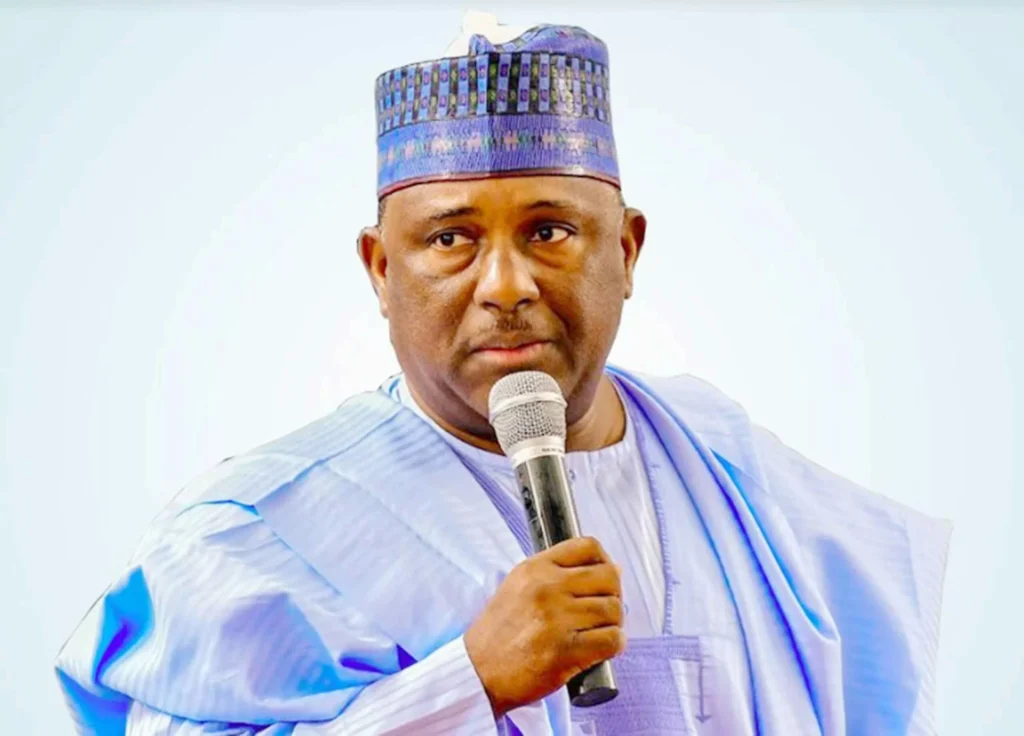The Standards Organisation of Nigeria (SON) has urgently called for a comprehensive overhaul of the nation’s building and construction sector, citing critical safety, quality, and sustainability failures that continue to endanger lives.
SON’s director-general, Dr Ifeanyi Okeke, made this call during a national conference yesterday in Abuja, warning that the industry’s persistent non-compliance with basic construction standards has led to devastating consequences, including building collapses, loss of lives, destruction of property, and an erosion of public trust.
Addressing the theme “Adherence to Standard Practices: Bedrock of Sustainable Development in the Building/Construction Sector,” Dr Okeke noted that with the demand for housing and infrastructure reaching unprecedented levels, the construction sector’s inability to meet even basic safety standards jeopardises the safety of millions.
“From homes to hospitals, highways to high-rise buildings, the state of our construction practices directly impacts every aspect of Nigerian life,” Dr. Okeke stated. “But the cold reality is this: we are on the brink of disaster, driven by a quality crisis.”
Despite decades of advocacy and public awareness campaigns by SON, Dr Okeke lamented the continuing knowledge gap among industry players. He pointed out that many construction workers, suppliers, and professionals must know the essential safety standards to build safe, durable, and sustainable structures. He stressed that this knowledge gap is a crucial factor contributing to the rising number of preventable building failures.
“We have had years of advocacy, but the fundamental problem persists—too many of our practitioners and stakeholders are still uninformed about the standards required to build safe, durable, and sustainable structures,” he said. “This knowledge gap directly contributes to the rising number of preventable building failures.”
Okeke also raised alarms over the growing prevalence of “quackery” within the sector, where unqualified individuals operate without proper oversight, leading to disastrous outcomes.
He warned that this lack of professionalism and widespread disregard for industry codes and safety regulations exacerbate the crisis.
“The consequences of allowing quacks to operate unchecked are dire,” he warned. “We are compromising the safety of our citizens and our country’s future. It’s time we confronted this issue head-on.”
As Nigeria’s population grows and the demand for affordable housing skyrockets, the DG called on the sector to embrace innovation in materials, construction techniques, and designs. However, he emphasised that such innovation must not come at the expense of safety or quality.
“As we look to meet the demands of a growing population, we must innovate—but we must do so with an unwavering commitment to quality and safety,” he said.
He also underscored the need for eco-friendly, sustainable building practices, aligning with the global push for climate resilience. He added that the construction industry must evolve to meet both today’s challenges and tomorrow’s demands.
“Our buildings must be designed to withstand the challenges of tomorrow, not just the needs of today,” he emphasised.
Dr Okeke further highlighted SON’s proactive efforts, such as the Mandatory Conformity Assessment Program (MANCAP) and the SON Conformity Assessment Program (SONCAP), which ensure that locally manufactured products and imported materials meet established quality standards. However, he stressed that more than these efforts are needed to address the sector’s systemic flaws. Therefore, he called for the full cooperation of all stakeholders, including government agencies, industry leaders, and professional bodies, to tackle the construction industry’s challenges.
“We cannot tackle these issues alone,” Dr. Okeke stated. “SON needs the full cooperation of government agencies, industry leaders, professional bodies, and all stakeholders to achieve meaningful change.”
Reaffirming SON’s commitment to a resilient, self-reliant construction sector, he underscored the importance of adhering to the highest standards of excellence to remain internationally competitive. He reiterated that the building sector must contribute to Nigeria’s economic growth while upholding safety, sustainability, and quality.
“The decisions we make today will shape the Nigeria of tomorrow,” he declared. “We have a collective responsibility to build a safer, more sustainable, resilient construction sector that will stand the test of time.”







